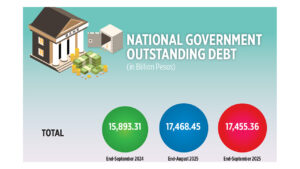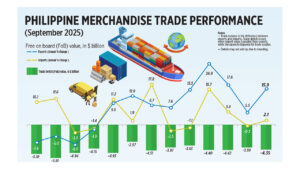A wave of economic adjustments is sweeping across the Philippines, bringing much-needed, though debated, relief to workers in key regions. Recent decisions by regional wage boards in Ilocos and Western Visayas signal a response to the rising cost of living, impacting millions of Filipinos.
The National Wages and Productivity Commission authorized these increases, with the new rates set to take effect in November. In Ilocos Region, non-agricultural workers in larger companies will see a P37 daily increase, bringing their minimum wage to P505. Smaller firms and agricultural workers will receive a slightly larger boost of P45, reaching P480 per day.
Western Visayas will experience similar changes, with non-agricultural, industrial, and commercial workers in larger establishments gaining P37, raising their minimum to P550. Smaller businesses will adjust by P45, reaching P530, while agricultural workers will benefit from a P40 increase, bringing their daily wage to P520. These changes will be implemented on November 19, 2025.
These adjustments aren’t isolated incidents. Labor Secretary Bienvenido Laguesma indicated that at least four more regions are poised to announce new wage orders soon. Public hearings are scheduled for next month, with final orders anticipated by December, covering the Cordillera Administrative Region, Mimaropa, Eastern Visayas, and the Zamboanga Peninsula.
Calabarzon (Region IV-A) also saw wage increases take effect recently, with adjustments ranging from P25 to P100 per day. This brought minimum wages to P600 for non-agricultural workers, P525 for agriculture, and P508 for smaller retail and service establishments.
The impetus for these changes stems from recent inflation data. While headline inflation rose to 1.7% in September – driven by fuel and vegetable prices – it remains within the central bank’s target range. Core inflation, excluding volatile food and fuel, has slightly eased, but remains a concern.
Despite these increases, some labor groups argue the adjustments are insufficient. The Federation of Free Workers (FFW) acknowledged the help provided by the Western Visayas hike, but emphasized it doesn’t fully address the basic needs of workers. They point to regional disparities as a key issue, creating uneven economic relief.
The FFW continues to advocate for a national living wage and a P200 across-the-board increase, believing a true solution lies in ensuring salaries provide a decent standard of living. They argue that the current regional system often leaves workers in less developed provinces struggling to keep pace with rising costs.
The debate highlights a fundamental tension in the Philippine labor landscape: the balance between regional economic realities and the need for a standardized, living wage. Labor leaders are pushing for a legislated national wage hike, aiming to create a more equitable system for all Filipino workers.






